We all know that having a newborn baby is one of the most thrilling times that we can experience. With so many baby care tips out there, it can get difficult to know what to do and what not to. Raising a newborn is also very exciting and difficult at the same time. From feeding and bathing to playing and sleeping, here you will find 101 baby care tips for every new mom that will ensure the baby’s development and health.
Every new parent is going to be given so many baby care tips. Most of them will be useless to you or won’t apply at all. There are thousands upon thousands of baby care tips. It’s hard to determine which ones are right for you and your child. Therefore, I’ve decided to combine as many useful tips into one list that will benefit all new moms.
In This Article
How to Take Care of Newborn Baby?
Taking care of a newborn baby is a challenging task. Parents stumble upon various stages of raising a baby into a healthy adult. Also, the most experienced parents find it daunting to care for a newborn child. When it comes to taking care of your newborn baby, there are a lot of things to consider.
With a new bundle of joy comes a bundle of questions. What are the best baby products on the market? What are the skincare tips for the baby? How to breastfeed the newborn baby? We have all the answers to these questions and more! Here are expert Baby Care Tips on how to take care of a newborn baby.
- Nursing Tips For Newborn
- Breastfeeding Tips For Baby
- Sleeping Tips for Newborn Baby
- Soothing and Bonding Tips
- Newborn Baby Diapering Tips
- Bathing Tips For Newborn Baby
- Newborn Health Care Tips
- Skincare Tips for Newborn Baby
- Infant Massage Tips
- Clothing Tips for Newborn Baby
Nursing Tips for Baby
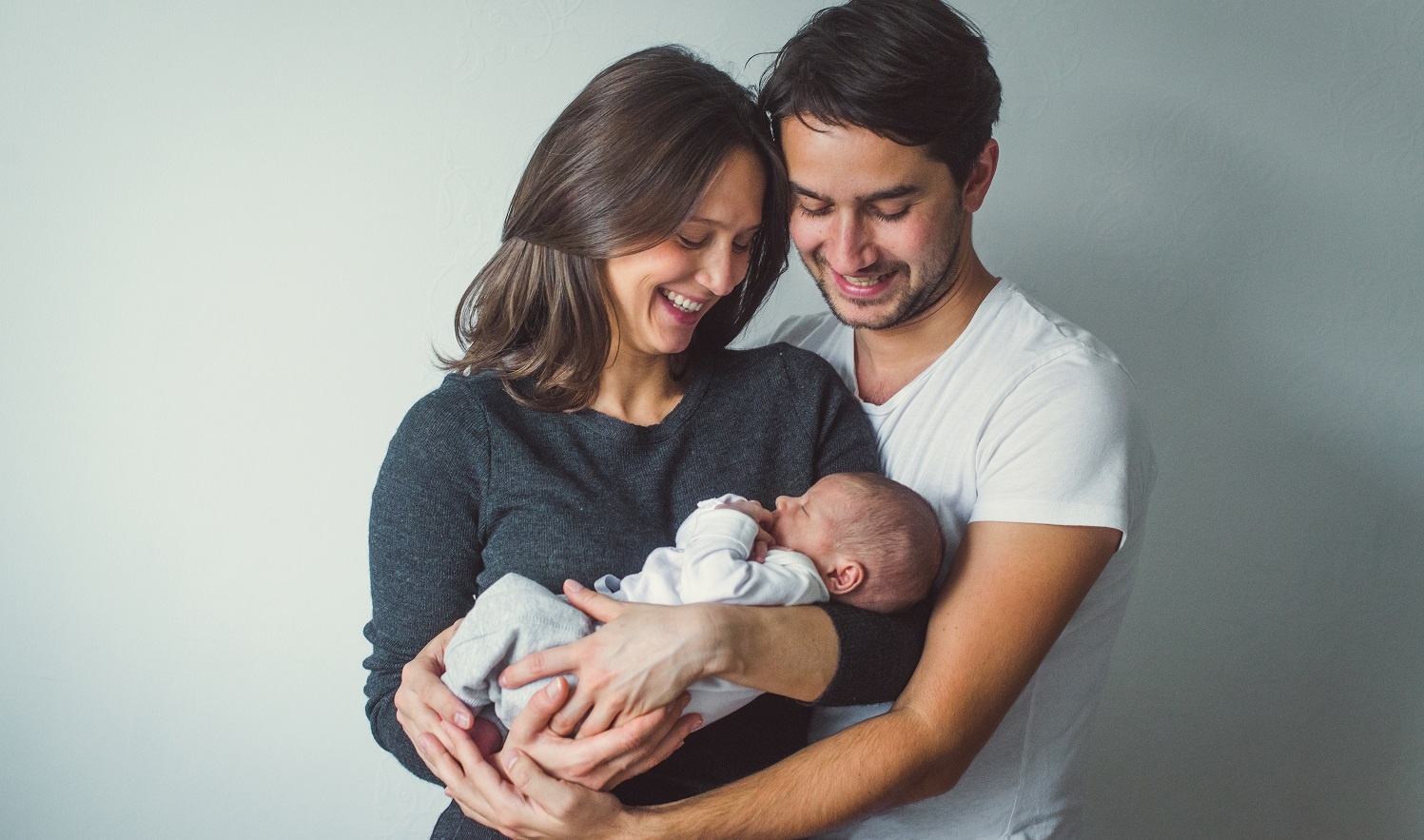
Only fewer parents know that Nursing means more than breastfeeding! It includes taking care of how to hold, change, burp, and care for your baby. We have listed down some nursing tips for newborns that will help to make the process easy and convenient for you.
- 1. Seek Help
- 2. Hire a Baby Nurse
- 3. Make use of the Hospital services
- 4. Hold baby in the right way
- 5. Wash Your Hands
- 6. Be Comfortable
- 7. Avoid Shaking
- 8. Remember to be gentle
- 9. Choose Comfortable Positon
- 10. Be Prepared
1. Seek Help
To have a better nursing experience, you should seek help from experts or anybody who has already been through the same phase. Moreover, you can consult a baby pediatrician to understand the right way of nursing a baby.
2. Hire a Baby Nurse
For convenience, you can choose to hire a baby nurse who can help you in taking care of the baby after the birth. Moreover, not only they will help you in feeding the baby but will also take care of him in your absence. This way, you can be sure that your baby is in safer hands and is getting special care and attention.
3. Make use of the Hospital services
The best way to be prepared for nursing the baby is to learn things from hospital resources. You can take help from lactation consultation staff. Seeking advice from nurses will also be beneficial. Being experienced, the nurse will help you follow the correct nursing practices.
4. Hold baby in the right way
Holding a newborn is a delicate task. You need to take care while you carry the baby upright. When carrying an infant, it is necessary to keep one hand on the head and neck at all times. As newborns do not have the necessary neck muscle strength to hold their heads on their own.
5. Wash Your Hands
Before picking up the baby, make sure your hands are clean. Since newborns lack a healthy immune system, they are susceptible to infection. Any germs on your hand can make them sick. Make sure anyone who comes into contact with your baby has clean hands.
6. Be Comfortable
Before holding the baby in your arms you should feel confident and be comfortable. It will not only help you carry the baby securely, but you will be able to give comfort to the little one as well.
7. Avoid Shaking
Many parents shake their newborns to wake them up from sleeping. But this is not a healthy practice to follow. Shaking can have a severe impact on the baby’s well-being. Thus, never shake your baby. You can tickle his foot to wake him up if you want.
8. Remember to be gentle
While taking care of your baby, make sure you are gentle enough with him. The skin of a newborn baby is delicate and harsh touch can cause redness on it.
9. Choose Comfortable Positon
You will be more confident, and the baby will be more secure if you hold him in a relaxed position. There are various ways to carry the baby. Many of these are suitable for burping and also for milk feeding.
10. Be Prepared
When you bring your newborn baby home from the hospital, make sure you have done the preparations. Make sure that you ready with the things required to feed the baby as soon as you reach home.
Breastfeeding Tips for Newborn Baby
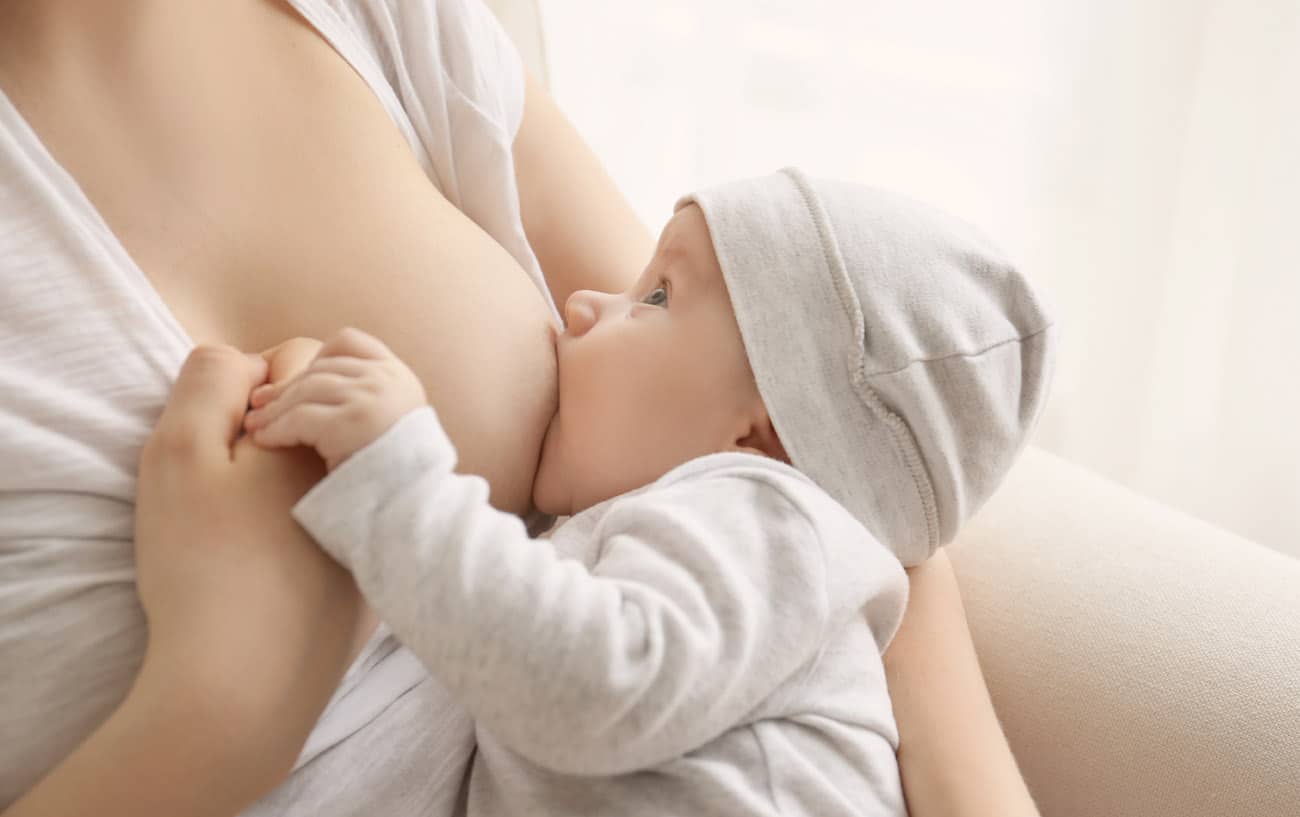
Breastfeeding a baby is probably the best gift you can give to your baby. It’s the only way to ensure that your child receives the most vital nutrients for growth and development. Breast milk also contains antibodies that protect your baby against infections. So, if you are planning to breastfeed your baby, here are some breastfeeding tips for new moms to help you out:
- 1. Have Patience
- 2. Gain Information
- 3. Feed Only When Needed
- 4. Get Comfortable while Breastfeeding
- 5. Find the Right Position
- 6. Monitor the Feed
- 7. Burp Your Baby
- 8. Stay Hydrated
- 9. Find a Peaceful Place
- 10. Ask for Assistance
1. Have Patience
Breastfeeding is a first-time experience for you and your baby. Thus do not panic about the process. It will take time to learn the right way and comfortable way to feed the baby. You need to stay relaxed and calm.
2. Gain Information
It will be great if you learn about all things related to breastfeeding. This way you can avoid committing mistakes. You can consider going for lactation classes to learn the proper way to feed babies. Or consult any lactation expert.
3. Feed Only When Needed
With time you will learn to anticipate the desires of your newborn baby. You will have to pay attention to babies actions to identify whether he is hungry or not. This way, you can feed them before they start crying.
4. Get Comfortable while Breastfeeding
If you will be comfortable while breastfeeding, your baby will be able to suck milk easily. Whereas, if you continue to move or twist, you will cause inconvenience to the baby. He might get irritated and may start crying.
5. Find the Right Position
To make it easy for yourself and the baby, find out the position that suits you best. You can make sure that the baby does not have to turn the head more while feeding. Also, please note that not every baby likes the position liked by another baby.
6. Monitor the Feed
To ensure that your baby is getting a proper diet, monitor the time and frequency of feeding. However, this might be challenging for you to notice the amount of feed, but still, you can notice if your breast feels less filled after feeding.
7. Burp Your Baby
To prevent the baby from being fussy, you should burp your baby after every feed. Babies take in air while feeding, which causes colic symptoms in babies. To avoid this, you must burp your baby the right way.
8. Stay Hydrated
Drinking a glass of water or juice while you breastfeed is a good idea. It helps to replenish your body, and you can stay hydrated. Or you can also grab a snack if it is been a while you had your meals.
9. Find a Peaceful Place
In the initial days, you will have to pay extra attention while you breastfeed your baby. So it is much favorable to choose a place where you can feed the baby in a quiet environment. Also, avoid watching TV or use a cellphone while feeding during few initial weeks.
10. Ask for Assistance
Being a new mom, it might be daunting for you to breastfeed the baby. For ease, you can seek help from professional nurses or any experienced person in your house. If you still face difficulties, it will be wise to reach out to lactation experts.
Sleeping Tips for Newborn Baby
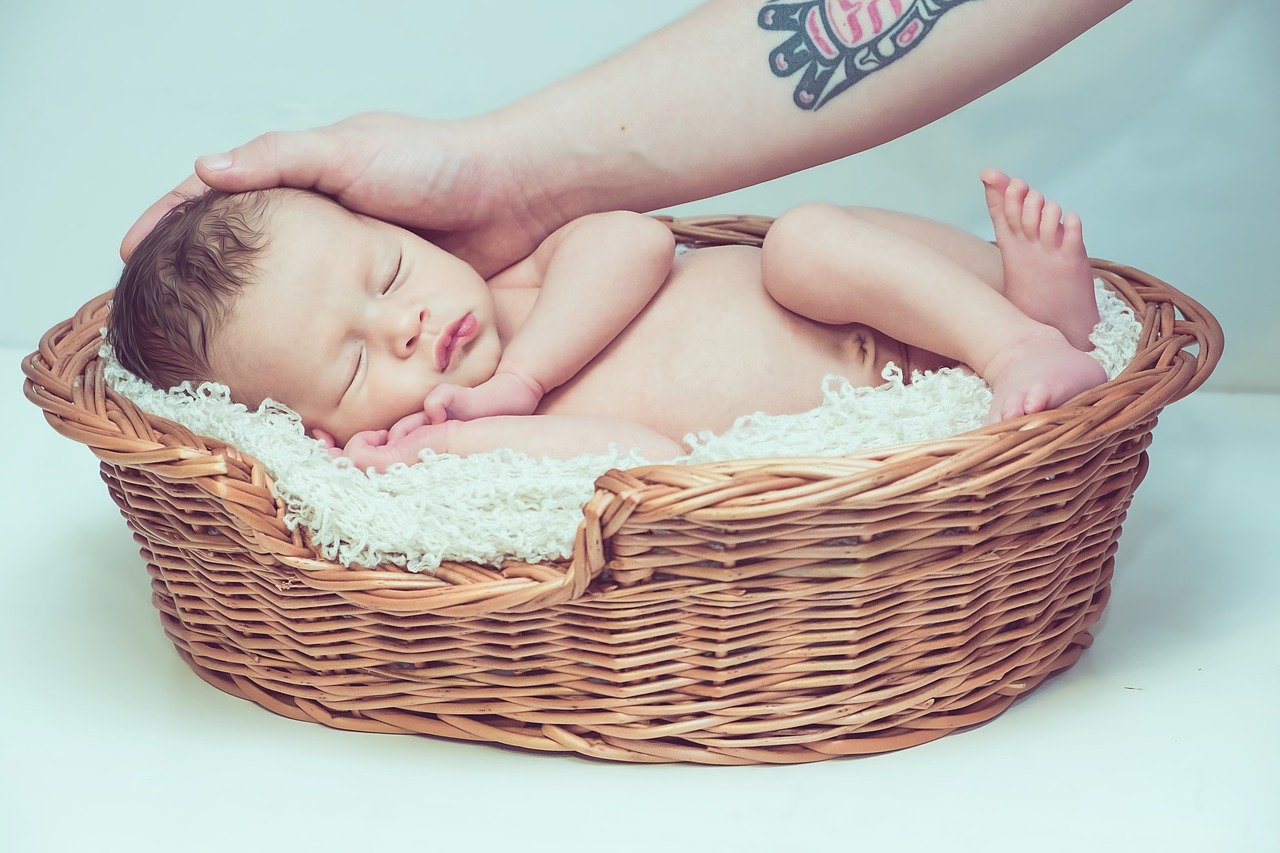
When it comes to a newborn infant, sleep is undoubtedly one of the most important things. Your new baby will sleep more than any of us can imagine, but it will not be enough. The health and well-being of your baby depend on him getting enough sleep. Here are tips to get baby to sleep:
- 1. Avoid Cosleeping
- 2. Place the Baby on the Back to Sleep
- 3. Don’t Keep Toys Near the Bed
- 4. Pay Attention to Night Clothing
- 5. Decide Turns
- 6. Low Lighting at Night
- 7. Try Different Sleeping Methods
- 8. Babies Don’t Sleep Throughout the Night
- 9. Don’t Rush for Feeding at Night
- 10. Learn Swaddling
1. Avoid Cosleeping
It is good to make your baby sleep in your room but make sure that you do not share the same bed with him. Always make the baby sleep in his crib. For safety reasons, keep the crib near to your bed. Also, do not use pillows in the crib.
2. Place the Baby on the Back to Sleep
Putting the baby to sleep on her back is the best practice to follow. You should avoid making him sleep on his tummy as it can cause the risk of overheating. Also, tummy sleeping increases the risk of SIDS.
3. Don’t Keep Toys Near the Bed
Many parents keep soft toys, bears in the crib of the baby. This is not safe for the baby as the fur of these toys can cause allergies in the newborn baby. Thus, do not forget to remove all stuffed toys while putting the baby to sleep.
4. Pay Attention to Night Clothing
While dressing your baby to sleep make sure that clothes do not lead to overheating. At night, skip making him wear socks or hats or any other type of accessories. Making sure the baby is not sweating while sleeping.
5. Decide Turns
It will be good if you take turns to sleep and take care of the baby at night. This way you will be sharing the responsibility with your spouse. Also, both of you can be relaxed for few hours.
6. Low Lighting at Night
Parents often complain that their baby is more active at night and sleeps well in the daytime. To make the baby sleep at night, you can use a nightlight. Also, during the daytime keep the baby engaged by talking to them to keep the baby awake in the daytime.
7. Try Different Sleeping Methods
There are different types of methods that you can choose to make the baby fall asleep. Such as Chair methods, Bedtime fading method, Ferber method, etc. You can use any of them that works for you!
8. Babies Don’t Sleep Throughout the Night
Unlike adults, babies do not sleep at night continuously. You need to understand that they require feeding after few hours. You can expect a baby to sleep for almost six hours at the age of 5-6 months.
9. Don’t Rush for Feeding at Night
At night when the baby wakes up and cries do not hurry to feed him. Wait and try to calm him with some soft sound or by patting him. However, before this make sure that he is not hungry in real.
10. Learn Swaddling
For newborn babies, swaddling is an effective technique to help them to sleep. It helps them to feel secure and cozy. But, at the same time make sure that it does not cause overheating.
Soothing and Bonding Tips

There is a lot to do when you have a newborn baby at home. Babies require special care and attention from their parents. They need taking out for vaccinations, diaper changes, burping, and many other things. At the same time, it’s a golden opportunity for you to spend time with your little ones and bond with them. Learn about few Soothing and Bonding Tips for new parents.
- 1. Play Soft Music
- 2. Talk to Baby
- 3. Cuddle with the Baby
- 4. Breastfeeding Helps in Building the Bond
- 5. React to Crying
- 6. Spend More Time
- 7. Avoid Overfeeding
- 8. Learn to Provide Comfort
- 9. Exchange Glances
- 10. Try Massage
1. Play Soft Music
Listening to music can help the babies stop crying. You can play a piece of soothing music for them. It will be calming for both the baby and the parents. Or you can choose to sing a soft melody for them.
2. Talk to Baby
Though your little might reply to your talks as adults do, this helps you to bond with him. This will also help him to identify your voice and learn the words slowly.
3. Cuddle with the Baby
One of the best ways to bond with your newborn baby is to cuddle with him. It helps the baby to recognize your gentle touch. When you cuddle with the baby, it makes them feel safe and secure.
4. Breastfeeding Helps in Building the Bond
For mothers, the best way to build a strong bond with their baby is by breastfeeding. When you feed your baby, he feels skin-to-skin contact with you. If you carry the baby in the correct position he feels comfortable in your arms.
5. React to Crying
When your baby starts crying, pay attention to him. It will make him feel that you are there to take care of him. Again, you can try to calm him by singing some lullabies or talking to him.
6. Spend More Time
Parents cannot bond with their babies if they do not spend time with them. Be it Mom or Dad, both should pay equal attention to babies. Before starting to bond with the baby, it is important to know them, anticipate their desires, etc.
7. Avoid Overfeeding
Sometimes due to overfeeding, babies become fussy and start crying loudly. It can make the baby uncomfortable. Thus pay attention to their feeding routines.
8. Learn to Provide Comfort
When you carry your baby in your arms, make sure he is comfortable. If the baby feels good to be with you, you will be building a good bond with you. However, for this, you must know how to carry a baby safely.
9. Exchange Glances
Whenever you are with the baby, try to look into his eyes. It will help you to grab the attention of the baby. Also, pay attention to your facial expressions. They will help him understand that you are trying to communicate with him.
10. Try Massage
Giving massages to babies is a good way of soothing them. Not only it will calm them, but they will giggle out of delight. But, make sure you know how to give massage to baby to avoid any risk to their body.
Newborn Baby Diapering Tips
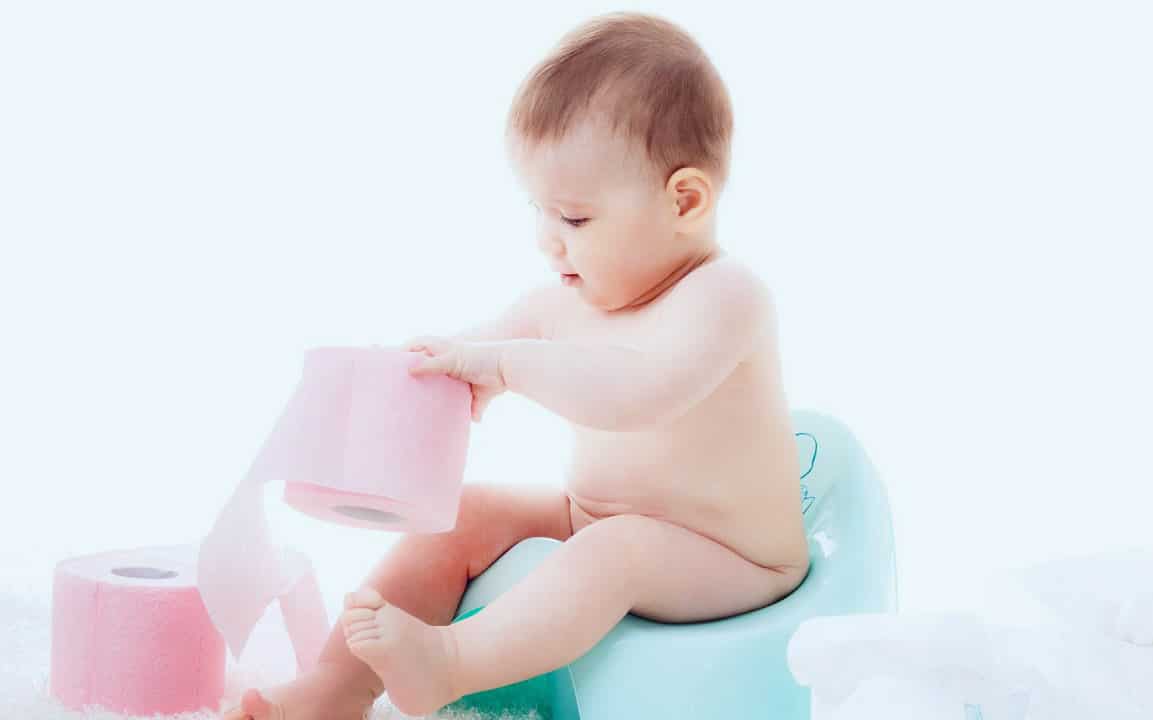
With the right equipment and experience, diapering your newborn baby can be a simple job. The first few months of your baby’s life are crucial because they are most vulnerable to rashes and other skin problems. Here are Newborn Baby Diapering Tips for parents to ensure that the job is performed correctly and without causing any skin problems.
- 1. Choose the Right Diaper Brand
- 2. Prepare Before Changing
- 3. Prevent Rashes
- 4. Check For Leakage
- 5. Maintain Proper Hygiene
- 6. Do Not Use Harsh Soap
- 7. Be Gentle by Cleaning
- 8. Use Ointment to Cure Rashes
- 9. Check For Expiry Dates
- 10. Take Guidance From Online Tutorials
1. Choose the Right Diaper Brand
The skin of the newborn baby is soft and sensitive. While buying diapers for your little one, make sure you choose a reliable brand to avoid skin infections.
2. Prepare Before Changing
Before you proceed to unwrap the diaper, keep few things ready so that you do not hassle later on. These things are warm water, cotton balls, a new diaper, and a changing cloth. It is done to make sure that the baby is left unattended even for a second.
3. Prevent Rashes
It is a common issue that parents worry about the most. A diaper rash can be caused by many things like using the wrong type of diaper. To prevent rashes, you should change the diaper often enough.
4. Check For Leakage
Once you have changed the diaper of your baby, do check after some time if it is leaking or not. It is to ensure that the baby does not stay in wet clothes for longer.
5. Maintain Proper Hygiene
Whenever you finish changing the diaper of your baby, make sure you wash your hands properly. It will help you to prevent spreading germs and keeping the baby safe from any type of infection.
6. Do Not Use Harsh Soap
It is advised not to use chemical-based soaps for cleaning your little ones. These chemicals can cause skin problems in the baby. Only go for the Doctor’s recommended cleaning products to prevent allergies.
7. Be Gentle by Cleaning
For cleaning, make sure of soft baby wipes or cotton balls. To protect the baby from germs, wipe the baby from front to back gently. Also, do not use perfumed wipes to avoid a chemical reaction on the baby’s skin.
8. Use Ointment to Cure Rashes
Diaper rash is a common problem. It can cause a lot of pain and discomfort to the baby and distress to the parents. To treat rashes, you can apply ointments to the skin. But only make use of Doctor’s Suggested product.
9. Check For Expiry Dates
If you are a parent of a newborn baby then you will have to stock up diapers for longer use. However, while buying the diapers, ensure to check their expiry date printed on the packaging. Using expired diapers can cause skin problems.
10. Take Guidance From Online Tutorials
It is helpful for first-time parents. Various online resources will help you learn easy tricks and hacks on diapering a baby. You can follow step-by-step videos or read informative articles.
Bathing Tips For Baby
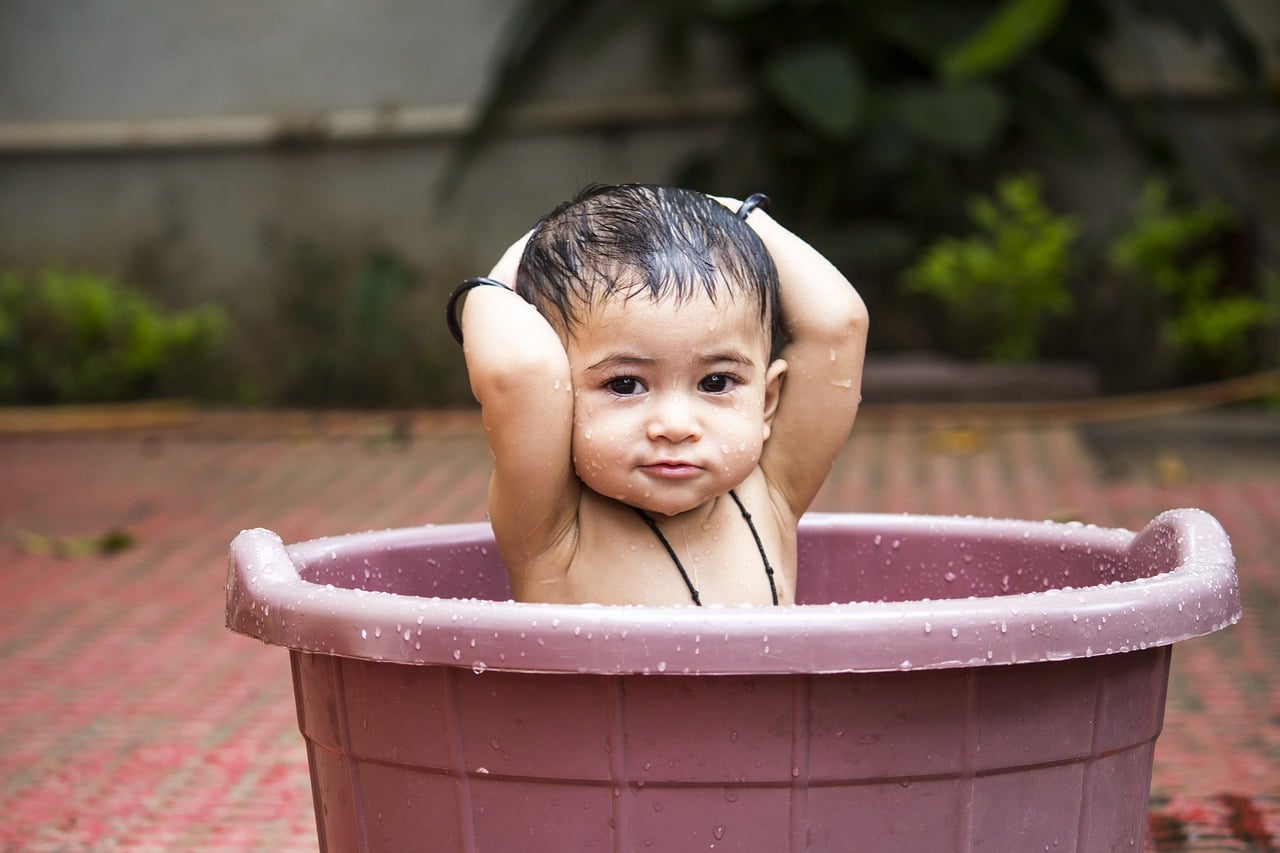
Bathing is one of the essential baby care procedures. Learning the proper techniques for bathing your newborn ensures that your baby will be safe and healthy. Bathing a baby is necessary for his health and hygiene. Our Bathing Tips For Newborn Baby is all that you need to know while bathing your baby.
- 1. Collect the Accessories
- 2. Check Water Temperature
- 3. Start with Face
- 4. Take Help
- 5. Don’t Use Too Much Soap
- 6. Gentle Patting
- 7. Be Ready with Supplies
- 8. Use Bathing Tub
- 9. Schedule Bath Timing
- 10. Be Quick
1. Collect the Accessories
Before you undress your baby, the first step is to do the preparations. Keep all the bathing stuff ready. It includes keeping the soap, towel, water, etc. , in your reach. Also, keep the new clothes ready.
2. Check Water Temperature
You must check the temperature of the water that you are using to bathe your child. To check the temperature, you can take the help of a thermometer. In case if it is too humid, add some cold water to cool it down.
3. Start with Face
While bathing your baby, first clean his face. However, be very careful with the baby’s eyes and mouth. You can use a damp cloth to clean the face. After cleaning the face, you can move to wash the whole body.
4. Take Help
For some initial bathing times, it is advised to take help from an experienced person. You might need help taking the baby away from the bathroom with dry hands after the bath. They can assist you in correctly holding the baby.
5. Don’t Use Too Much Soap
Using too much soap can dry up the skin of the baby. Also, it can irritate, thus do not use it too much. Moreover, choose the baby products wisely so that does not cause any side effect and are tear-free.
6. Gentle Patting
Avoid vigorously rubbing the skin to dry the water. The Baby’s skin is sensitive and soft, thus use a washcloth and soft towel to blot dry. Also, if you use lotions for your baby, do not apply them with a firm touch.
7. Be Ready with Supplies
Just after the bath, you will need a towel, baby lotion, diaper, clean clothes, so remember to keep these things ready. You can keep them ready before you give a bath to the baby, or you can seek help from another person to keep the things in place.
8. Use Bathing Tub
For easy and comfortable for parents to give baths to their babies in a bathing tub. Hard plastic bathtubs are durable and safe for newborn babies to use. Also, make sure to take the correct size so that baby can fit into it.
9. Schedule Bath Timing
Choose the time for a bath when you and your baby are in a relaxed mood. If you take the baby for a bath when he is irritated or fussy, it will be difficult for you to bathe him. Depending on comfort, parents decide different times to bathe the baby, like in the afternoon, before sleeping, etc.
10. Be Quick
do not take too much time in bathing the baby. Newborns are more susceptible to catch a cold. Spending too much time bathing them is not good for their health. The baby may start crying if you take longer to finish bathing.
Newborn Health Care Tips
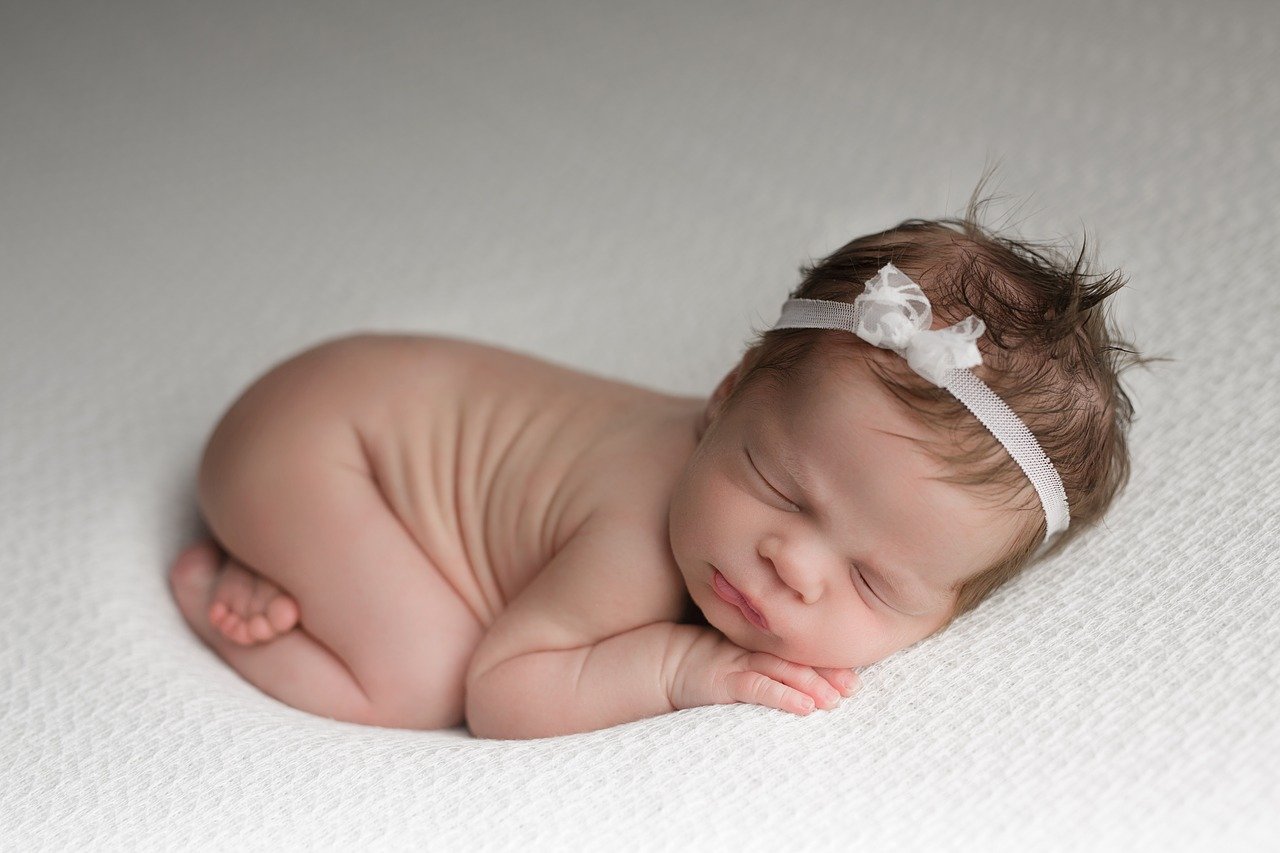
As a new parent, you will want to know what is normal versus what may be a sign of a health problem. Even if you are an experienced parent, knowing the signs and how to react can be valuable. Here are some of the most important Newborn Health Care Tips for parents to keep in mind.
- 1. Be Hygenic
- 2. Use Disinfectant
- 3. Stay Away If You Are Not Well
- 4. Keep Diaper in Clean Place
- 5. Take Care of Vaccinations
- 6. Be Careful with Baby Clothes
- 7. Trim Nails
- 8. Sterilize Feeding Bottles
- 9. Dress Baby Properly
- 10. Encourage Breastfeeding
1. Be Hygenic
Hygiene helps prevent the spread of infections in places where it is most needed. It is important to wash your hands with soap and water or use hand sanitizer after using the restroom, before touching the baby, and after changing a baby’s diaper.
2. Use Disinfectant
Disinfectants destroy microorganisms when they come into contact with them. On surfaces, in water, and on objects, they kill bacteria and viruses. To avoid the spread of infection in a newborn’s area, parents should use disinfectants regularly.
3. Stay Away If You Are Not Well
Newborn babies are easy targets for any type of virus and must know best baby health care tips to protect them . If you are not feeling well or suffering from a contagious disease, stay away from the baby to prevent infection.
4. Keep Diaper in Clean Place
Along with maintaining hygiene around the baby, ensure you keep his diapers in a clean and safe place. If you keep them in a separate drawer do not forget to clean them on regular basis. Also, you can choose to keep naphthalene balls.
5. Take Care of Vaccinations
Vaccination prevents infants from virus diseases and their complications. It is an important aspect of the healthcare of babies. Parents should know about the vaccination schedule, the right time to vaccinate, and essential vaccinations, you must vaccinate your baby with.
6. Be Careful with Baby Clothes
Do not wash baby clothes in the common laundry detergent. You should wash them with a special anti-bacterial detergent. Also, wash baby clothes separate from other laundry clothes. If needed, you can use fabric softeners.
7. Trim Nails
There are two primary reasons why newborns’ nails should be clipped. The first is for hygiene reasons, and the second is to keep the baby secure and happy. It is necessary to ensure that they do not scratch themselves and cause discomfort, as well as to prevent them from scratching others by mistake.
8. Sterilize Feeding Bottles
If you are bottle-feeding your baby, make sure you sterilize it at least two times a day. Here, if possible then it will be best to wash them thoroughly before every feed.
9. Dress Baby Properly
In winter especially, pay attention in dressing the baby. He will require more warm clothes than yours. But, do not put several layers of clothes on him. Make sure they do not sweat or feel cold in the clothes.
10. Encourage Breastfeeding
Breastfeeding is the best meal for your baby during his first six months. Breast milk is easy to digest and aids in the prevention of infections in your infant. It also boosts your baby’s growth and weight gain.
Skincare Tips for Newborn Baby

The skin of your newborn baby is extremely sensitive. Taking care of your newborn’s skin is as important as feeding them well. A baby’s skin is very delicate and susceptible to infections. You should always be aware of which skincare products are suitable for a baby’s skin. Here are some helpful Skincare Tips for Newborn Baby hints for caring for the skin of your child.
- 1. Avoid Diaper Rash
- 2. Choose Homemade Products
- 3. Nourish Dry Skin
- 4. Avoid Talcum
- 5. Prevent Heat Rash
- 6. Avoid To Expose the Baby to Sunlight
- 7. Avoid Frequent Bathing
- 8. Prefer Cotton Clothes
- 9. Mild Detergent
- 10. Consult Pediatric Dermatologist
1. Avoid Diaper Rash
This can be done by keeping the diaper area open for some time. However, diaper rash is treatable with home remedies that help heal and prevent a recurrence.
2. Choose Homemade Products
Being a new parent necessitates a thorough understanding of baby skincare. Although adult skincare products are often too harsh for babies’ sensitive skin, homemade baby skincare products are easy to make and perfect for their skin!
3. Nourish Dry Skin
Babies are more vulnerable to dry skin than adults because their skin is more sensitive. Although babies’ skin is much thinner than adults’ skin, they need just as much hydration and nourishment as you do. For this, you can use chemical-free lotions by consulting specialists.
4. Avoid Talcum
Talcum powder contains small granules or particles of cornstarch. There lies a risk that babies can inhale these fine grains. It can lead to serious lung issues. Thus it is best not to use them on your baby.
5. Prevent Heat Rash
Due to overheating, heat rash appears. You can help your baby avoid heat rash by keeping him or her cool and relaxed during the first few weeks. Or by applying the right skincare products for newborns, you can prevent heat rash.
6. Avoid To Expose the Baby to Sunlight
Direct exposure to direct sunlight can cause irritation and sunburn to babies. Therefore, for the initial few months, limit the baby’s exposure to sunlight. Also, avoid using sunscreen on babies.
7. Avoid Frequent Bathing
Bathing should be done only when it is needed and not frequently. When you shower the child, make sure the water is lukewarm and that you use a mild soap or soap-free cleanser. Avoid using soaps with moisturizers or fragrances as these can cause irritation on the skin.
8. Prefer Cotton Clothes
Prickly heat rashes are a common problem in babies. Synthetic clothes can cause allergic reactions and irritation. Thus you should choose cotton wear for babies. They are more comfortable and
soft.
9. Mild Detergent
For washing the clothes of the baby you should opt for non-perfumed and gentle detergent. Also, you must wash new clothes for the baby before making him wear them. Similarly, even the bedding must be washed.
10. Consult Pediatric Dermatologist
It is quite common to expect some rashes and bumps on the baby’s skin. However, if even after taking care of the problem of the above factors persists for longer, you must consider going to Pediatric Dermatologist for consultation.
Infant Massage Tips

Infant massage is a method for soothing and calming children that uses gentle contact. If you are a mom, you might be wondering if infant massage is something you should do. You may also be questioning if it can benefit children or not. If you are wondering, infant massage is worth trying, here are the best Infant Massage Tips for new parents that you need to know.
- 1. Make Schedule
- 2. Massage Without Applying Pressure
- 3. Keep Talking
- 4. Massage Only When Baby is in Good Mood
- 5. Choose Comfortable Place
- 6. Observe When to Stop
- 7. Don’t Massage a Hungry Baby
- 8. Using Oil is Optional
- 9. Keep an Eye on Massage Duration
- 10. Wipe Away Oil
1. Make Schedule
It is advised to follow a routine to massage your baby. It will be best if you massage him at the same time and for the same duration every day. This way, your baby will be used to it and will enjoy it. He will be more comfortable and ready for it.
2. Massage Without Applying Pressure
While massaging your baby, make sure you are not applying pressure on his body. You should also avoid stronger strokes and be as gentle as possible.
3. Keep Talking
To make it a more enjoyable and comfortable experience for the baby, you must keep talking to him. This way, he will be more engaged and take more interest in interacting with you. Moreover, it will also help in building a bond with the baby.
4. Massage Only When Baby is in Good Mood
Do not massage your baby when he is fussy or irritated. It might be possible if you massage him when he is not in good mood, he might start crying. Thus, never massage a grumpy baby.
5. Choose Comfortable Place
It will be ideal to choose a flat and safe surface for baby massage. The more comfortable the baby is, the easier it for you to give him a massage. You can use the baby’s changing table or your bed.
6. Observe When to Stop
While massaging the baby, keep an eye on your baby’s movement. If he is uncomfortable with any stroke, he will try to oppose it. Or if the baby starts to fuss, you must stop there and then.
7. Don’t Massage a Hungry Baby
If it’s been a while since you feed your baby, then do not proceed with massaging him. However, at the same time, make sure that you do not start giving him a massage right after feeding. You must wait for at least 45min after feeding.
8. Using Oil is Optional
Using oil for massaging depends upon your choice. If you find using oil messy, you can skip it. However, oil makes massaging smooth as it reduces friction. But, be wise with the oil you choose. It can have a direct impact on a baby’s health and growth.
9. Keep an Eye on Massage Duration
Even if the baby is enjoying, giggling during the massage, do not forget to stop on time. Depending on the baby’s mood, massage can be extended up to 35mins. However, if you are short of time, a 15mins massage will also work.
10. Wipe Away Oil
Once the massage is finished, make use of soft tissue to wipe off excess oil on the body, especially the palm and fingers. It will protect the baby from putting fingers in the mouth with oil on them.
Clothing Tips for Newborn Baby
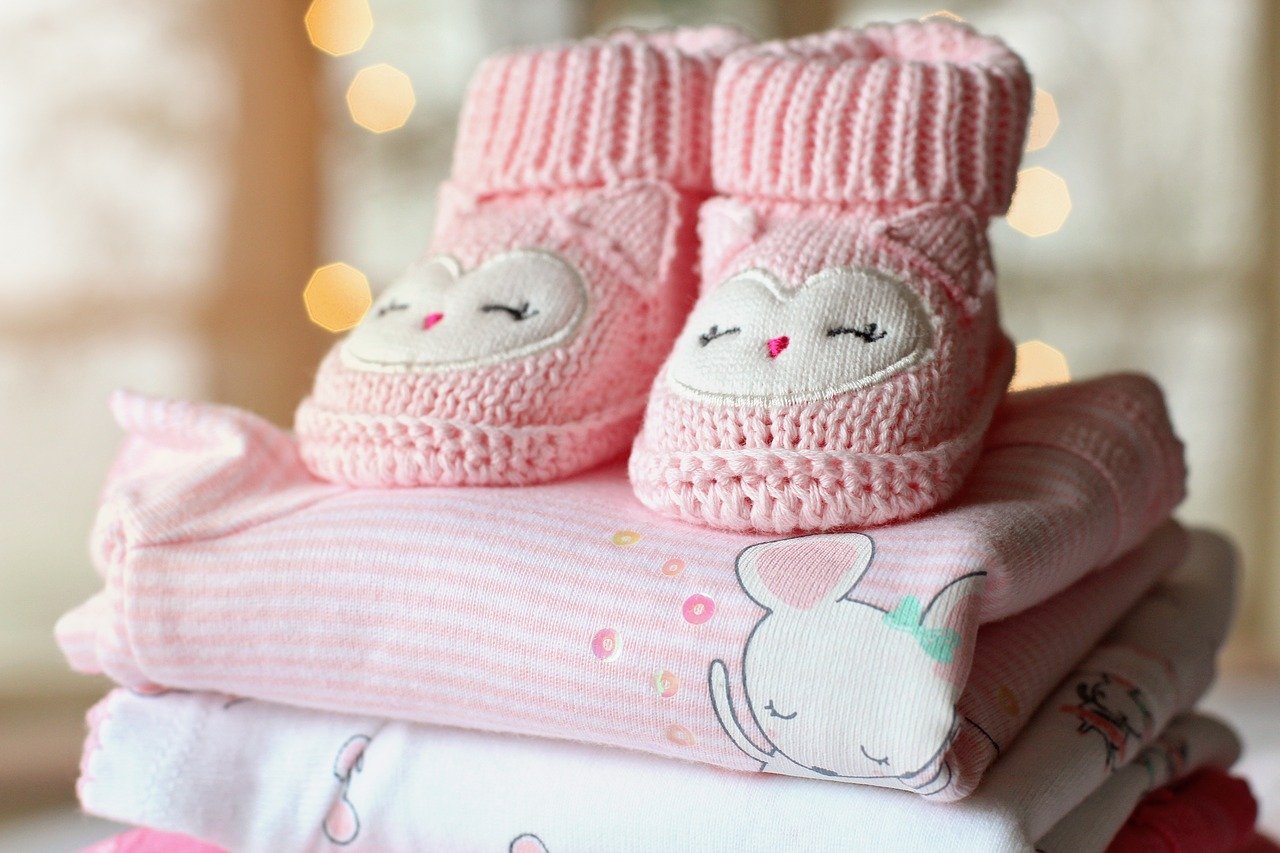
Infants grow very fast and a huge amount of money is spent on buying new clothes for them. Baby Clothes are supposed to be soft and light in weight. The clothes should not be tight-fitting so that the baby feels comfortable. Proper care should be taken to see that the clothes are not torn or faded. We have discussed top Clothing tips for a newborn baby that should be given importance.
- 1. Give Priority to Comfort
- 2. Choose Clothes Based on Weather
- 3. Spend on Accessories wisely
- 4. Quantity in Mind
- 5. Go For Easy-to-Wear Clothes
- 6. Purchasing Basics in Bulk
- 7. Consider the Weight and Height of the baby
- 8. Select Durable Clothes
- 9. Don’t Buy a Lot of Expensive Clothes
- 10. Go For a One Size Bigger
1. Give Priority to Comfort
Comfort is the most important factor when it comes to dressing your little one. The sensitive skin of your baby requires special care and comfort. Thus, buy clothes that are soft and breathable.
2. Choose Clothes Based on Weather
If your baby is born during winter, you will have to spend more on thermal clothes and add layers of cloth to keep him warm. Whereas, if he is born in summer, you will have to search for light and breezy ones.
3. Spend on Accessories wisely
Buying accessories for your baby is interesting, no doubts. But before investing in them, you have to think about whether they are really useful or not. Moreover, your shopping list must contain buying bibs, socks, and caps.
4. Quantity in Mind
The baby is growing every day. The clothes you purchase today might not fit him after few weeks. Thus, do not stock up unnecessarily. It will be better if you go for repurchasing after whenever needed.
5. Go For Easy-to-Wear Clothes
The benefit of choosing the clothes that are easy to wear is that in an emergency when you are somewhere outside, you change them quickly. Picking clothes with more ribbons and frills will be complex to change.
6. Purchasing Basics in Bulk
Basics like a vest, socks, reusable nappies, etc. , should be purchased in bulk. You can go for simple and affordable multi-quantity packs to save money on them.
7. Consider the Weight and Height of the baby
When you go for purchasing clothes for your newborn you will see that the sizes of different brands or shops differ. Even if they are for same age group babies. Thus the best way to purchase clothes with the right fit is to consider the baby’s height and weight rather than the age label.
8. Select Durable Clothes
To save time and prevent color fading, pick the clothes that are machine washable. The ideal choice will be to purchase cotton clothes. Not only they are comfortable but, durable and easy to wash.
9. Don’t Buy a Lot of Expensive Clothes
No matter how fancy and expensive clothes you purchase for your newborn, he will not be able to wear them too much. With time, he will grow, and these expensive clothes won’t fit him. Hence, save money and do not stock up fancy stuff.
10. Go For a One Size Bigger
Parents can save money and avoid frequent shopping sessions by purchasing clothes that will fit the baby for longer. Purchase some clothes that fit the baby and some with a little bigger size. This is because babies can wear loose clothes but not the ones with small sizes.
Bottom Line
Hopefully, these baby care tips will help you to care for your baby. Your baby is the apple of your eye, and you want to do your best for him and become the best parents. But, parenting brings with it many challenges, especially for first-time moms and dads. Learning to take care of a baby is a long and difficult process that no one ever really prepares you for. It is for this reason that we have shared these Baby Care Tips that you should keep in mind to look after your baby. Hopefully, they will help you to feel more comfortable as you care for your new baby.











